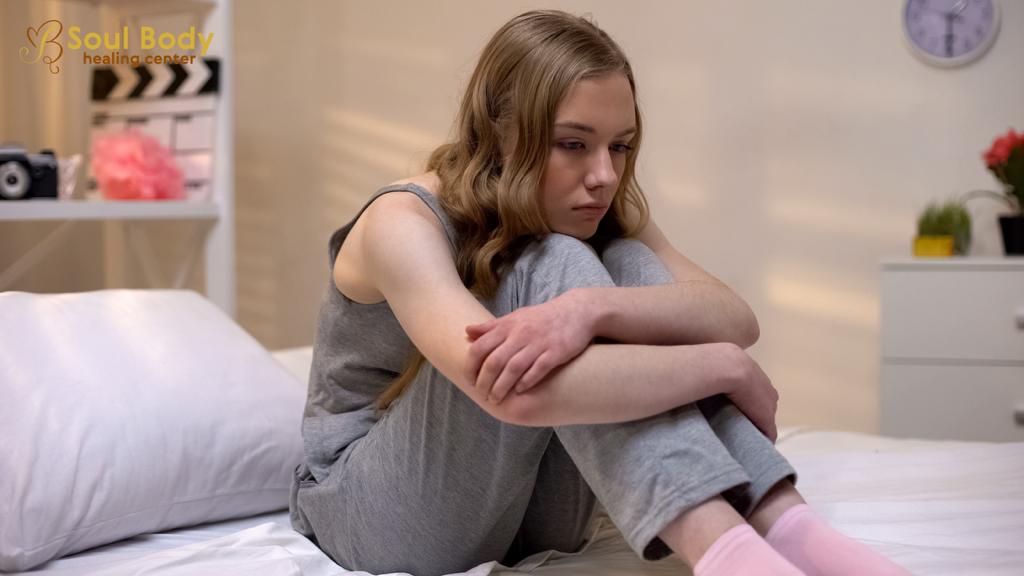Know about Adult Anxiety: So, if someone comes today, let’s say they’re 30, 35, or 50 years old, expressing, “I’m very anxious; I remain very anxious. And I do not have much self-confidence, self-esteem, this and that.” I instinctively examine their childhood before delving into the current situation. Many of them, in their youth, resorted to different strategies to prove their confidence to themselves or others. Some became introverted, immersing themselves in a fantasy world where they controlled everything, including all the characters. In this fantasy realm, they had complete confidence in navigating those characters. Others rebelled against the whole system as a means to showcase their confidence. But upon closer examination, the underlying factor is being unsure—uncertain about what is expected of them and what is acceptable from them.
For this, there were some solutions I looked into and figured out. When encountering subjects like this, you might think, “Oh, my God, my mother did not do the right thing. She handled me like this. That’s why I’m like this.” Then you look at your mother and realize she also didn’t know. And then you see that your mother’s mother also didn’t know. So, in a chain, it passed from one generation to another—everyone was ignorant, and that ignorance was perpetuating. It eventually landed on me. Now, I believe I need some help to sort myself out. But then you see where it is coming from.
The Origins of Insecurity, Anxiety, and Low Confidence
I noted that in any relationship when two people want to go into a partnership—whether a husband and wife or two partners—they ensure that both parties understand what they should do to avoid misunderstandings. However, in marriage relationships, particularly from the parents’ perspective, there is often uncertainty about roles and responsibilities. What is the definition of a father? What is the definition of a mother?
When a child enters the picture, you first introduce them to everybody, giving them a name during the naming ceremony. Then, you acquaint them with the surroundings and explain how things work. This process helps the child orient themselves to the environment as they grow. The root of insecurity, anxiety, or a lack of confidence often stems from this unknown world where individuals are unsure and unfamiliar.
So, I’ve observed people growing up, and in their conversations or observations, they frequently add the phrase, “I don’t know.” It’s commonly used when people express something and then follow it with a disclaimer, stating, “But I don’t know.” The key lies in exploring this realm of uncertainty, seeking answers to the unknown, and discovering the missing pieces. This process contributes to increasing confidence and reducing insecurity.
For example, during layoffs, the uncertainty of whether one will be affected or not can create a sense of insecurity. Sitting there and pondering, one may be hesitant to learn more about their situation, fearing the potential outcome.
# Unpacking Adult Anxiety: Tracing the Roots Back to Childhood
Understanding the Hidden Origins of Anxiety
Have you ever wondered why some adults struggle with anxiety, a lack of self-confidence, and low self-esteem well into their 30s, 35s, or even 50s? It’s a complex issue that often has its roots in childhood experiences. Today, we’re going to explore how these early experiences shape our adult lives and contribute to the anxiety and insecurity many people face.
Childhood Coping Mechanisms
When adults come to me with feelings of anxiety and self-doubt, my first instinct is to examine their childhood. Many of these individuals, in their youth, adopted various coping strategies to prove their confidence, either to themselves or to others. Some became introverted, retreating into a fantasy world where they had complete control, even over all the characters within it. In this imaginary realm, they found a sense of confidence that eluded them in the real world. Others rebelled against the system, using defiance as a way to showcase their confidence.
But beneath these different strategies, there’s a common thread: uncertainty. These individuals were unsure about what was expected of them and what behavior was deemed acceptable. This uncertainty became a breeding ground for anxiety and self-doubt.
The Chain of Generational Uncertainty
As we delve deeper into the origins of anxiety, we often find that the roots go further back in time. It’s not just about our own experiences; it’s about the experiences of our parents and even our grandparents. In many cases, we realize that our parents did the best they could, given their own upbringing and circumstances. They, too, grappled with uncertainty and lacked a clear blueprint for parenting.
This chain of generational uncertainty continues until it eventually lands on us. When we recognize this, it becomes apparent that seeking help to break this cycle is a sign of strength, not weakness
The Birth of Insecurity, Anxiety, and Low Confidence
In any relationship, whether it’s a marriage or a partnership, clarity about roles and responsibilities is essential to avoid misunderstandings. However, in marriage relationships, particularly from the parents’ perspective, there is often uncertainty about these roles. What does it mean to be a father? What is the definition of a mother? These questions can lead to confusion in family dynamics.
When a child enters the picture, parents introduce them to the world, giving them a name during a naming ceremony. They gradually acquaint the child with their surroundings, explaining how things work. This process is intended to help the child find their bearings in the world as they grow.
However, it’s in this unknown world that the seeds of insecurity, anxiety, and low confidence are often sown. People often express this uncertainty with the phrase “I don’t know.” It’s a common refrain when discussing something, followed by a disclaimer: “But I don’t know.”
Seeking Answers to the Unknown
The key to overcoming these feelings of insecurity and anxiety lies in exploring this realm of uncertainty. It’s about seeking answers to the unknown and piecing together the missing parts of the puzzle. This process contributes to increasing confidence and reducing insecurity.
For example, when faced with uncertainty, like the fear of potential layoffs, it’s natural to feel insecure. However, sitting in that uncertainty without seeking more information only exacerbates the Adult anxiety.
In the next blog, we will discuss how seeking answers to the unknown and piecing together the missing parts of the puzzle. This process contributes to increasing confidence and reducing insecurity and navigate anxiety. Reach us for more info.





